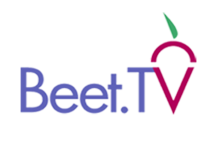
In the era of Twitter and Facebook, having an individual blog is essential as it is "yours," says Anil Dash, the chief evangelist for SixApart, the big San Francisco-based blog software company.
Anil explains that while social networks ebb in and out of vogue and present content changing ideas, having a blog is always controlled by the blogger. He also explains the value of blogging in search optimization.
In this interview, he says that TypePad is readying a major redesign. SixApart also has Vox and Movable Type. I interviewed him last week at the Mediabistro Internet Week event held at the Times Center.
Beet.TV uses TypePad as its publishing platform.
Andy Plesser, Executive Producer
Video Transcript
Anil Dash: One of the things blogs excel at is they make themselves easy to find in search engines by giving them the behaviors that Google or Yahoo! prefer. So, frequently updating, automatically archiving things, having feeds for your content, those things all happen automatically so you don't have to be an expert at search engine optimization. You can just be doing the actions you would do of blogging, posting videos, writing about the content you're interested in and the tools will do the rest for you.
Andy Plesser: Now in terms of TypePad's integration with Twitter, do you suggest that people set it up so each post goes automatically or you do it selectively or what's the right thing to do?
Anil Dash: Well, we've really optimized it so if you're blogging on TypePad, you can choose which posts go out to Twitter. You know it depends on your frequency and what kind of content you write. You probably shouldn't send every single post out to Twitter because your friends are gonna say, "Look, you're just bombarding me with this." But it also depends on the nature of your Twitter followers. There's some accounts that are designed just to be updates, so it really is a matter of understanding your audience, knowing what their needs are going to be. One tip that I really recommend is edit that message that goes out on Twitter so it's not just recapitulating the beginning of your post, but instead specifically written for that media.
Andy Plesser: What's the, kind of, the value of blogs or doing a blog now where there's Twitter, there's Facebook. You know for individuals. I'm not talking about, you know, big publishers, for the individual. How, how has that changed?
Anil Dash: It's really important to have your own site and your own blog in addition to a presence on social networks like Facebook or MySpace or services like Twitter. And the reason is you need to be in control of what comes up with somebody searches for your name. You know it's still a little bit of a fuzzy area as to who owns what on Facebook, on MySpace, on Twitter. On your own site, you're absolutely clear that its content that you own and control. More importantly it gives you a hub to connect to all those places. A lot of people that love the web, they're adding one new social network every year. Couple years ago Friendster was hot, and then you know maybe it's MySpace one year and LinkedIn the next, and Facebook after that. Next year it's gonna be something else, you know, and what you find is you want to combine all those pieces together–your own site is the place to bring all that together.
Andy Plesser: Great and at any rate, we've had a great experience at Beet.TV using TypePad. Tell us about some of the changes or things for TypePad or you know for the consumer site.
Anil Dash: Absolutely. There's basically going to be a reinvention of TypePad coming in the next few months. It's the biggest set of updates we've done in the more than five years that we've been running the service. And it's everything from little touches like being able to get around the application easier to completely changing the look of the dashboards so that it's much easier to understand. You'll see a whole bunch of new themes coming along. The new default theme is called Journal. It's the best template I think we've ever put out or anybody's put out on any blog platform. I've used it on all on my new sites. It's just really really easy to customize. And I feel like frankly it's a lot more expressive because I'm able to make these two-way connections to these other social networks. So that I can easily put a widget on my sidebar of my TypePad blog showing what Twitter updates I put out. And at the same time, as soon as I update my TypePad blog, it's going out telling Twitter, "Hey, here's the update that I put out." Even more simply, my commenters can sign in with Facebook, with Google, Yahoo!, whatever account they already have, so I know it's a real person leaving that comment and at the same time they don't have to create a new account just to leave a comment. It's really a radical change my blogging.


























